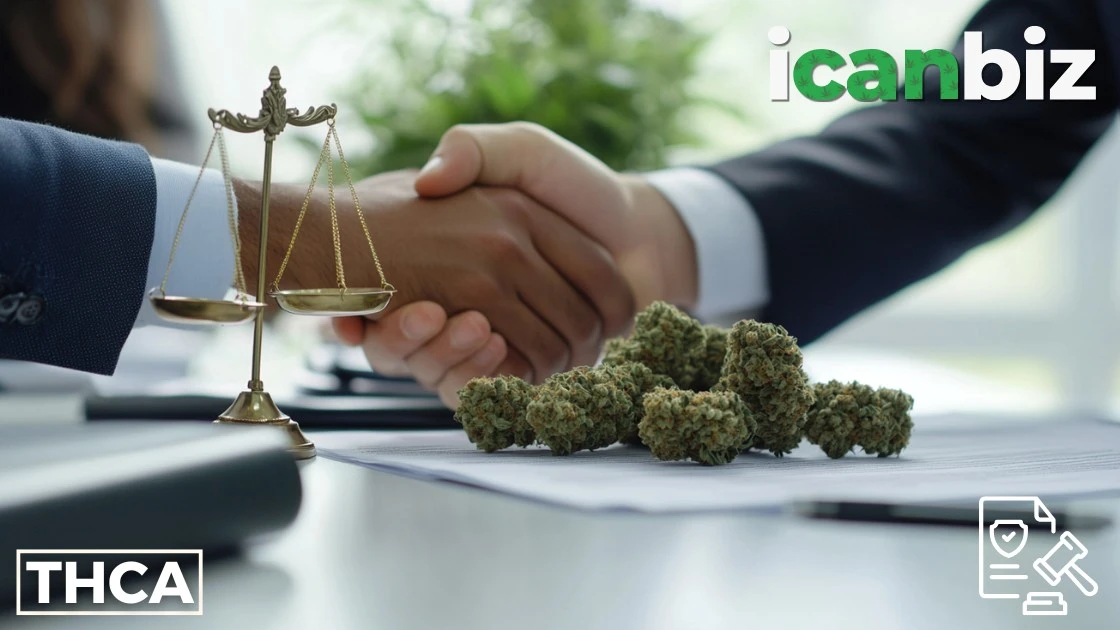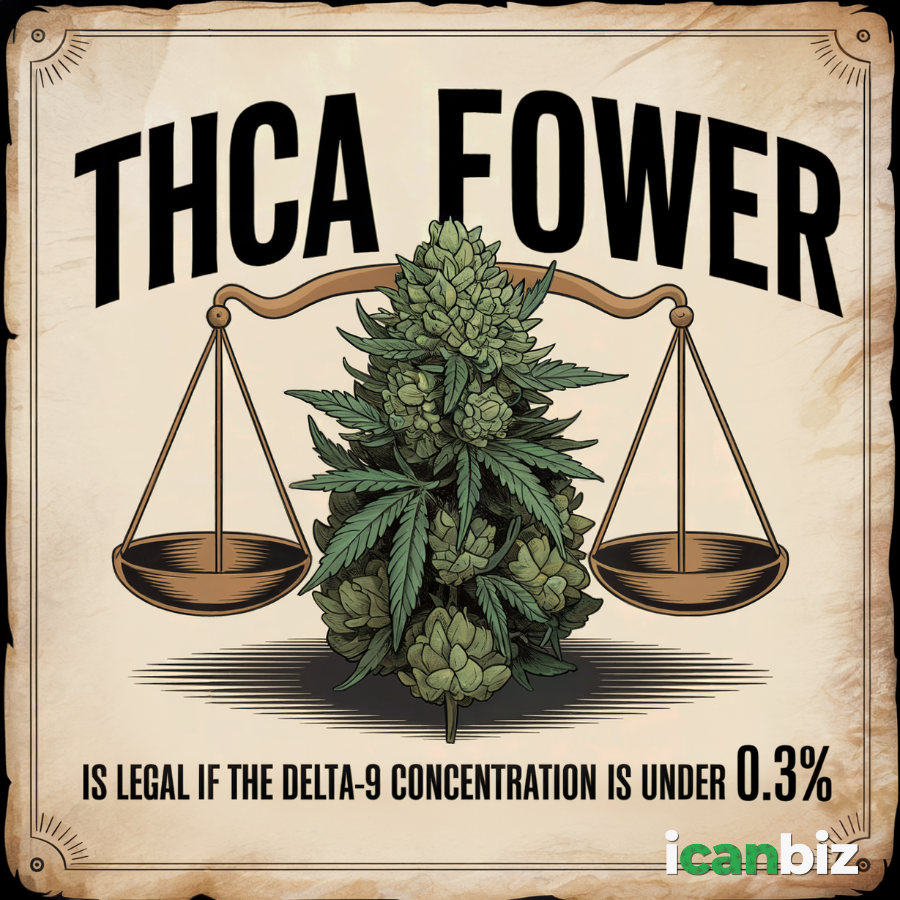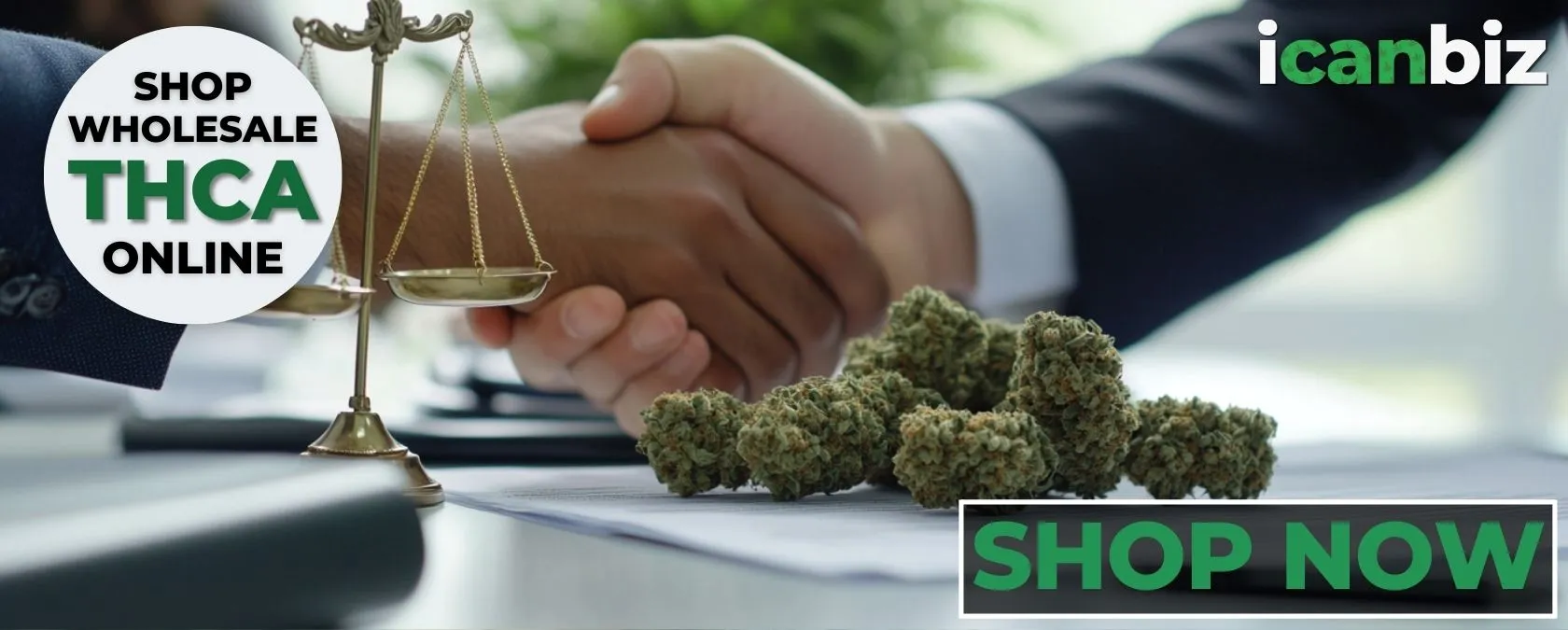
The wholesale distribution of THCa (tetrahydrocannabinolic acid) flower has emerged as a significant opportunity within the hemp industry. As a non-psychoactive precursor to THC, THCa offers potential therapeutic benefits without the intoxicating effects, making it attractive to a broad consumer base.
However, navigating the legal landscape for legal hemp and other THCa products requires a comprehensive understanding of federal and state regulations, testing requirements, labeling standards, and more.
This guide aims to provide a detailed overview of the legal considerations involved in the wholesale distribution of THCa flower, ensuring that businesses can operate compliantly and effectively in this evolving market.
Understanding THCa and Its Legal Status
To understand the legal distinctions of THCa hemp flower, it’s important to first grasp how THCa differs from THC and why that matters under the law. THCa, or tetrahydrocannabinolic acid, is a naturally occurring cannabinoid found in raw cannabis and hemp plants. On its own, THCa is non-psychoactive, meaning it doesn’t produce any intoxicating effects. However, when exposed to heat through a process known as decarboxylation—such as when smoking, vaping, or baking—THCa converts into THC, the compound responsible for the well-known “high.”
This distinction becomes especially important in legal and regulatory contexts. Many laws surrounding hemp flower are based on THC levels measured before the product is consumed. Because THCa only becomes psychoactive post decarboxylation, products that contain high amounts of THCa but low levels of delta-9 THC can technically fall within the legal definition of hemp—at least before use. However, after decarboxylation, these same products may exceed legal THC thresholds and could potentially be considered a controlled substance depending on how local or federal authorities interpret the law.
Federal Legal Framework

Back in 2018, the federal government passed the Farm Bill—a major turning point for the hemp industry. This legislation officially made hemp and its derivatives federally legal, as long as they contain no more than 0.3% Delta-9 THC on a dry weight basis. Since THCa isn’t the same as Delta-9 THC, it isn’t directly restricted under those federal guidelines. That said, things get a little murky when you consider how THCa can convert to THC once it’s heated.
The DEA has raised some red flags about this, warning that products with high THCa levels might be considered illegal if they cross the total THC threshold after decarboxylation. Their argument is rooted in the Controlled Substances Act, which still classifies THC as a Schedule I substance. But it’s important to note that this stance hasn’t been written into law—at least not yet. In fact, several recent court decisions have reaffirmed that hemp products meeting the Delta-9 THC limit remain federally legal.
Still, anyone distributing or promoting THCa flower should be mindful of how they position it in marketing materials. The legal gray area means it’s not just about the lab test results—it’s also about how the product is described, sold, and perceived by regulators.
State-by-State Regulations
While federal law provides a baseline, individual states have the authority to impose additional restrictions on hemp products, including THCa flower. It’s imperative for wholesalers to understand and comply with state-specific regulations.
States with Favorable Regulations
Many states align with the federal definition of hemp, allowing the sale and distribution of THCa flower as long as it meets the 0.3% Delta-9 THC threshold. States such as Texas, Florida, and Tennessee fall into this category.
States with Restrictions
Some states have adopted a “total THC” testing standard, which includes both Delta-9 THC and THCa in the THC calculation. In these states, THCa flower may be considered illegal if the combined THC content exceeds 0.3%. States like California, Colorado, and Connecticut have implemented such standards.
Prohibited States
A few states have explicitly banned the sale and distribution of THCa flower, regardless of its THC content. For example, Idaho and Indiana have stringent laws that prohibit smokable hemp products, including THCa flower.
Licensing and Compliance Requirements
When it comes to selling THCa flower, your packaging and labeling need to be dialed in—just like with any other CBD products. Everything on the label should reflect what’s actually inside, especially the potency of both THCa and Delta-9 THC. It’s also smart to make it crystal clear that your product is derived from hemp and meets the requirements of the 2018 Farm Bill.
Beyond just the numbers, your packaging should include a brief compliance statement—something that shows you’re following federal and state laws, and any relevant age restrictions or health warnings. This helps keep customers informed and adds a layer of legal protection for your business. Think of it as setting the tone for transparency and high standards.
And don’t forget the physical packaging itself. In many cases, you’ll need child-resistant closures, tamper-evident seals, and clear labeling that aligns with local rules. Some states are stricter than others, and while the FDA hasn’t issued sweeping rules for THCa flower yet, they’ve definitely kept an eye on how cannabis-related products are marketed and sold—so it’s wise to stay ahead of the curve.
Testing and Quality Assurance
Testing is a big part of staying compliant when you’re dealing with THCa flower. Before anything hits the shelves, it should be thoroughly checked by an accredited third-party lab. These labs confirm that your flower contains no more than 0.3% Delta-9 THC and that it’s clean—no pesticides, heavy metals, or anything else you wouldn’t want in your lungs. Some labs even go the extra mile by running a post decarboxylation test to show how much THC would be present if the product were heated, which is especially important in legal gray areas. When you’re looking to buy the absolute best THCa flower in bulk, there are no room for shortcuts.
Just as important as the testing itself is the Certificate of Analysis, or COA. This document breaks down the cannabinoid profile, purity, and safety of your product. Keeping up-to-date COAs on hand is key, not just for transparency with customers but also in case regulators come knocking. Whether you’re testing for THCa flower, marijuana, or other cannabinoids, the goal is to use similarly reliable methods that hold up under scrutiny and show you’re running a legit, law-abiding operation..
Labeling and Packaging Standards
When you’re selling THCa flower, your labeling and packaging need to be spot-on. That means the label should clearly show what’s in the product—especially the percentages of THCa and Delta-9 THC. It should also mention that the flower is derived from hemp and complies with the 2018 Farm Bill. Transparency here isn’t just good practice—it helps build trust with your customers and keeps you aligned with legal expectations.
It’s also smart to include a quick statement about compliance with federal and state laws, plus any required health warnings or age restrictions. These little details can go a long way in protecting your business from legal headaches while making sure customers know exactly what they’re getting into.
And don’t overlook the packaging itself. In many cases, it needs to check a few specific boxes—like being child-resistant, tamper-evident, and clearly labeled. Some states even have their own additional rules, so staying up-to-date on local regulations is key. Bottom line: your packaging should be just as professional and compliant as the product inside.
Transportation and Security
When you’re moving THCa flower pounds from point A to point B, it’s not as simple as tossing them in a box and hitting the road. Since THCa is derived from raw cannabis buds, it falls under the same transport rules as other THC products—even if it technically qualifies as industrial hemp under federal law. That means using secure, tamper-proof packaging and keeping paperwork on hand that proves your product is legit and within legal limits.
You’ll also want to keep a solid paper trail. A clear chain of custody is key for showing you’re playing by the rules. That means documenting every step—from when the flower is harvested and tested to when it gets shipped out for distribution. Keep things like COAs, shipping manifests, and any other records that show where the product’s been and who’s handled it. Not only does this keep you in compliance, but it also protects your business if questions ever come up down the line.
Financial and Tax Considerations
Navigating the financial side of the THCa flower business can get tricky. Because of the complicated legal status surrounding cannabis-related products, not every bank is willing to jump in and offer services. Some are still cautious, lumping THCa in with marijuana—even though it’s derived from federally legal hemp. That’s why it helps to work with banks or credit unions that have experience in the hemp space. They’re more likely to understand the nuances and less likely to shut down your account without warning.
Taxes are another area where things can get confusing fast. Depending on where you operate, THCa flower might be subject to state-specific excise taxes—or it might not be taxed at all. There’s no one-size-fits-all approach here, so it’s super important to know your state’s rules and stay on top of your filings. Falling behind or missing something could lead to some nasty penalties, and in this industry, staying compliant is everything.
Partnering with Reputable Suppliers
In the world of cannabis products, compliance isn’t just a box to check—it’s the backbone of a sustainable business. That’s why partnering with wholesale THCa suppliers who truly understand the rules is a game-changer. The right supplier will provide all the necessary documentation—like COAs and licensing—so that every half pound you purchase is backed by proof that you’re operating above board. This becomes even more important when you’re ordering in bulk quantities, where a single mistake can turn into a serious liability.
But compliance is just part of the story. Quality matters too. Customers notice the difference between a decent flower and one that’s been grown, handled, and packaged with care. Suppliers who invest in strict quality control don’t just help you meet legal standards—they help you build a product line that people trust and come back for.
That’s where iCanBiz comes in. As a trusted wholesale partner, iCanBiz delivers not only premium THCa flower but also the confidence that everything you’re sourcing is 100% THCa legal. They handle the hard stuff—like documentation and testing—so you can focus on building your brand and scaling your business the right way.
The Final Hit: Wholesale THCa Laws
Navigating the legal side of wholesale THCa flower isn’t always simple—but with a little diligence and the right approach, it’s totally doable. Staying on top of both federal and state regulations, keeping up with solid testing and quality control, and working with reliable, well-informed suppliers can make all the difference. That’s where a partner like iCanBiz really shines—they understand the ins and outs of the industry and make it easier to stay compliant while delivering high-quality THCa flower you can count on. When you take the time to do things right (and work with people who do the same), you set your business up to thrive in this fast-moving, ever-evolving market.

Legal Disclaimer:
By reading this information presented, you agree to release the author of any liability that comes from using this data. This post contains no legal advice. Claims about cannabinoids have not yet been approved by the FDA.
References
- https://www.nasdaq.com/articles/cannabis-market-forecast-top-trends-cannabis-2025
- https://www.expressnews.com/business/article/thc-cannabis-texas-ban-dan-patrick-sid-miller-19962200.php
- https://nypost.com/2024/09/01/us-news/bargain-buzz-ny-pot-farm-moves-100000-economical-dime-bags-under-legalization
- https://thecannabisindustry.org
- https://www.cannabisbusinesstimes.com
frequently asked questions
Is wholesale THCa flower legal under federal law?
Yes—under the 2018 Farm Bill, wholesale THCa flower is federally legal as long as it contains no more than 0.3% Delta-9 THC on a dry weight basis. Since THCa is non-psychoactive until heated, it technically falls within the federal definition of hemp. However, businesses should remain cautious, as the DEA has suggested that high-THCa products may still be scrutinized post-decarboxylation.
What are the state-by-state legalities of selling THCa flower wholesale?
THCa flower laws vary widely by state. Some states—like Texas, Florida, and Tennessee—follow federal guidelines and allow THCa flower. Others, like California and Colorado, use a “total THC” standard that includes THCa in THC calculations, making many high-THCa products non-compliant. A few states, including Idaho and Indiana, outright ban smokable hemp products. Always check state-specific THCa regulations before wholesaling.
What compliance documentation is required to wholesale THCa flower legally?
To stay legally compliant, wholesale THCa flower must include a Certificate of Analysis (COA) from a certified third-party lab showing Delta-9 THC content is ≤ 0.3%. Proper labeling, packaging, and documentation—such as a compliance statement, transport manifests, and chain-of-custody records—are essential for proving the product meets both federal and state hemp laws.
How does decarboxylation affect the legality of THCa flower?
Decarboxylation is the process that turns non-psychoactive THCa into intoxicating THC when heated. Although raw THCa flower may test below 0.3% Delta-9 THC, after heating, it can exceed legal THC limits. This gray area is key to understanding wholesale THCa flower legalities—some regulators evaluate total potential THC (THCa + Delta-9 THC), not just what’s present before use.
Can THCa flower be shipped wholesale across state lines?
Yes, interstate commerce of compliant THCa flower is permitted under federal law—as long as the flower contains less than 0.3% Delta-9 THC and is derived from hemp. However, shipping into states with strict or total THC standards could violate local laws. To avoid legal risks, always verify destination state policies and include proper COAs and transport documentation.
